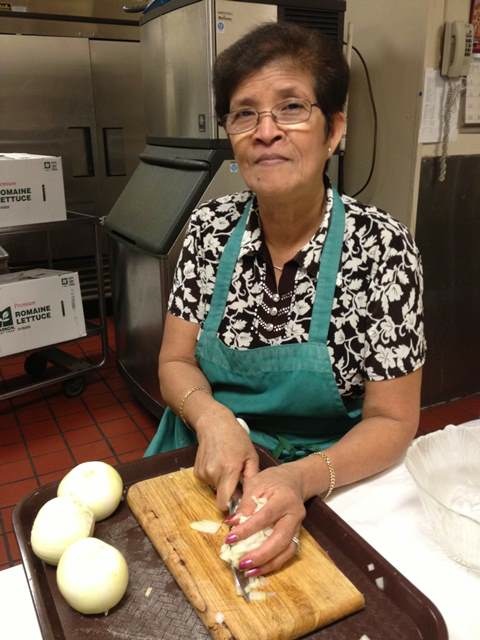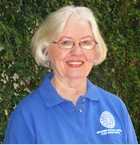By Jeff Brumley
Broadway Baptist Church in Fort Worth, Texas, is famous for a lot of things, including its historic organ, liturgical worship and its urban outreach. But it’s also known, at least locally, as one of the best places to enjoy Asian dining thanks to a pair of Cambodian sisters who have been cooking at the Texas church since the 1980s.
“One of the favorite things at the church is the Cambodian stir fry,” said Claudine Rayburne Marion, the minister who oversees Broadway’s kitchen operations.
Another specialty is turkey and dressing. “You’d think they were Southern cooks,” Marion said. “Their range of cooking is amazing.”
Run Tep is celebrating her 30th anniversary as a cook at Broadway, and her sister Roeung Tep is marking year 25. The sisters are described as inspirations to the congregation through the volume and variety of their cooking — feeding 500-600 a week — and also by the spirit of outreach and inclusivity they exhibit daily.
But that praise and their decades of service were achieved only after surviving unlikely odds to escape oppression and war to arrive in the United States via refugee camps in Thailand.
The family’s nightmare began in the late 1970s when they were living near Phnom Penh. The Communist government was waging a brutal campaign of oppression. “We were scared somebody was going to kill us, so we just ran from that,” Run Tep said.
 Their journey included periods of starvation and dogged pursuit by authorities. “You heard helicopters, and everybody just runs.”
Their journey included periods of starvation and dogged pursuit by authorities. “You heard helicopters, and everybody just runs.”
Once in the refugee camps in Thailand, Run Tep and her family, who were Buddhists, were exposed to the gospel. She attended numerous Bible studies and said she was drawn to the message “come to God and he will take care of you.”
Later in the Philippines, at a camp where refugees were taught English prior to resettlement in the United States, the family came across Baptist missionaries from Oklahoma. That’s how they were eventually funneled to Broadway, which at the time was sponsoring Cambodian immigrants being resettled in Texas.
Run Tep and her sister — who immigrated later — were initially hired in the housecleaning department at Broadway. At the time, they knew nothing about American food.
“We didn’t know how to eat that food,” she said. “We bought a big ham and we didn’t know how to eat it.”
Inclusivity, hospitality
But they eventually learned to eat and even cook that food and, as other church cooks retired, the sisters replaced them. Their range of cooking increased through practice and by watching cooking shows, and they had help from other family members who volunteer in the kitchen.
And all along, the sisters raised their children at Broadway, seeing them go through Sunday school and participate in various ministries — even though Broadway helped them establish their own Cambodian church in another location.
“We cook also at the Cambodian church,” Run Tep said.
That kind of commitment to two churches is a model for the congregation at Broadway, Marion said. They’ve also led the way in communicating the importance of radical inclusivity and hospitality in a culture where that’s not always been welcome.
“The table is a pretty important metaphor in their Christian lives,” she said.

That goes for outside the church, too.
“They still do their traditional weddings and receptions … in other parts of the city where many Cambodians are,” Marion said. “They want the ones who are still Buddhist to feel welcome, too.”
But the sisters’ number one loyalty — at least where cooking is concerned — is at Broadway, Run Tep said.
“I don’t want to go back to Cambodia,” she said. “I don’t want to go anywhere else until I retire.”
